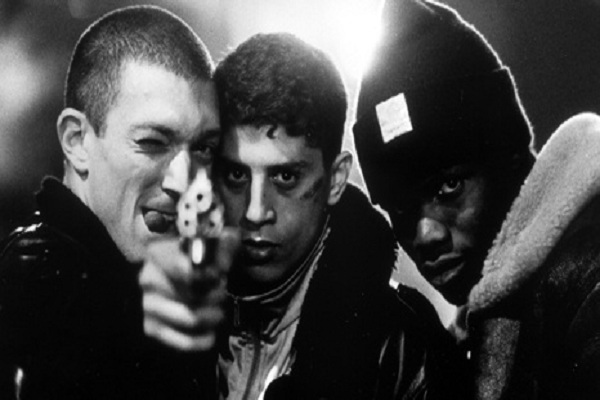There is plenty of nostalgia around in this Jubilee Weekend. Any look back on 60 years brings temptation to think that the past was better than the present. This is what Woody Allen calls ‘golden age’ fallacy, which is defined (in his Midnight in Paris) as an age-old and ‘erroneous notion that a previous time period is better than the one one’s living in.’ This disorder was on show during BBC 2’s Review Show last night, where guests were bemoaning the death of protest music.
The panel (dominated by Kirsty Wark and music critic Paul Morley) were discussing BBC 4’s 3 part documentary, Punk Britannia. The first part of this series is available on i-Player and it is worth watching as a piece of cultural – and political – history. You get a sense of Britain in the 1970s: stagnant, culturally, politically and economically.
It’s the same story in Dominic Sandbrook’s exhaustive new history Seasons of the Sun: The Battle for Britain, 1974 – 1979. Among other things, he describes how disaffection and frustration built into a crescendo of punky irreverence, and, on the other side of divide, the beginnings of the Thatcherite revolution. Punk was, then, inherently political. A protest, if you like.
The Review Show was smitten with Punk Britannia. Kirsty Wark and Paul Morley were misty-eyed, as only ageing, respectable punks can be. Forgetting they were in a chi-chi TV studio, they professed bemusement at the apparent conformity and conservatism of today’s teenagers. And then it happened. Where, Paul Morley asked, is the music of protest today?
I’ve heard that question a lot in the last two years, always asked by people of a certain age. I find it strange because an answer seems very clear. Today’s music of protest does not originate from charismatic iconoclasts whose success leads them to advertise Country Life butter. Rather, it grew out of the decrepit ghettos of Black America.
Rap and hip-hop are, often, a protest against poverty and social exclusion. Take, for instance, ‘Fight the Power’ by Public Enemy, which eventually appeared on their 1990 album, Fear of a Black Planet. The message is not subtle. The lyrics – in addition to labeling cultural icons Elvis Presley and John Wayne racists, and making reverential references to James Brown and Martin Luther King – castigate American history and values, both red and blue America.
‘I’m black and proud/ I’m ready and hyped, plus I’m amped/ Most of my heroes don’t appear on no stamps./ Sample a look back, you look and find/ Nothing but rednecks for 400 years if you check.’
The line about stamps is the most powerful because it is the least vehement. It expresses the dispossession of a race.
But Public Enemy needn’t have limited themselves to racial issues. Rappers of all colours and creeds, from the 90s to the present day, have written lyrics about the want, ignorance and violence that corrupts their communities. Mike Skinner and Eminem are perhaps the most famous white exponents of this genre; a genre that has had enormous appeal in the developed world, crossing language barriers.
Mathieu Kassowitz’s seminal 1995 film La Haine (The Hate) featured a song by French rappers, DJ Cut Killa. They melded a melody by American rapper The Notorious BIG with the lyrics of Edith Piaf’s ‘Je ne Regret Rein’, and then overlaid that concoction with their own visceral rap about what the police had coming to them (the picture at the top of this blog is a clue). The song blasted out from a room in a tower block as Kassowitz’s camera surveyed one of Paris’s grim orbital estates, the sort of place where crime is a pastime rather than a habit.
These hopeless places exist across the developed world, and most of those whose misfortune it is to have been born into them must feel an overwhelming desire to escape. We know that many turn to crime and mischief. The present government in Britain is trying to tackle those impulses by instilling people with an understanding of the value of work. Rap music has, in its way, preached a similar message from time to time, supported by the genre’s enormous commercial heft and the conspicuous wealth of those who have made a success of it.
This has been the case for 20 years. In ‘Machine Gun Funk’ (circa 1994), the Notorious BIG, a sometime gangster and crack dealer, rapped:
‘I don’t sling guns/ I got bags of funk, and it’s sellin’ by the tons./ Niggaz wanna know how I live the mack life/ Making money smoking mics like crack pipes./ It’s type simple and plain to maintain/ I add a little funk to the brain.’
None of this casts humanity in the shade of the Garden of Eden, but it is a function of art (especially low art) to imitate life, no matter how debased.
As I write, someone in the adjacent estate is playing music with a heavy baseline. It is repetitive, loud and unprepossessing. The lyrics are hard to catch, but there is a smattering of ‘bitches’ and stronger expletives, with references to money and ‘pigs’.
This anti-social broadcast seems to epitomise a sense of nihilistic otherness. It is the same when youths play their music out loud in public, particularly on buses and trains. It amounts to saying FU to those around them, an insult we usually repay internally, being too timid to say anything.
The music of protest, Paul Morley, is all around you.






Comments